The Minority Body

Interview by Richard Marshall

'Disability, even if neutral, invariably requires accommodation, and accommodation is, in the world we inhabit, a scarce resource. Disability often involves caretaking work undertaken by others - what Eva Kittay calls the labor of dependence - and again in the world we inhabit this is work that disproportionality falls on women, especially women of color, and is poorly compensated. Disability often involves complex health conditions, and there is striking socioeconomic disparity in whether parents can manage the cost and even in some cases just the time such health conditions can demand. All that to say, it’s complicated, and I’ve grown wary of answering questions like this at a highly abstracted level.'
'For whatever reason, people who are critical of the idea that sincere gender self-identification needs to be treated as accurate and authoritative often seem to think that we can only treat gender self-identification as authoritative by denying the importance of the body to gender, or by saying that gender is merely a matter of personal feeling (and thus giving up on materialist or structuralist theories of gender). I think that isn’t true, so my work has been an attempt to add to the conversation around the options for things we could think about gender. But gender is hard, and our understanding of gender is very much culturally in flux at the moment, so I don’t pretend to have the answers here.'
'If I was confident that the progressive elite of academia would always be on the side of right, then I wouldn’t be too worried about a norm of discourse that says you can shout down views that you find offensive or that you are politically opposed to. But I’m not confident of that. In fact I’m very confident of the opposite. And so I think it’s imperative, if we want to protect the ability of the truly vulnerable to be heard and to question consensus, that we have a norm of allowing views that go against the political grain. This will, of course, involve having a norm that allows for shitty and offensive views.'
'I ... think about metaphysics what I think about almost any area of philosophy - we might not make progress, we might just be fumbling around in the dark with no hope and no flashlight. But there is something beautiful about the fact that as humans we ask and try to answer these questions, and there is value to the asking. Like I said, though, I’m an addict, so I might just be on a bad trip.'

Elizabeth Barnes's research interests are divided between metaphysics, social philosophy, feminist philosophy, and ethics. She's particularly interested in the places where these topics overlap. Here she discusses how feminism, disability and metaphysics interact, physical disability, terminological etiquette, why disability is neither sub-optimal nor bad yet is compatible with harm, the minority body, causing disability, social constructionism, gender, the ameliorative project, metaphysics not being just about carving nature at the joints, her addiction to metaphysics, vagueness and the fundamentality of dogs!!
3:16: What made you become a philosopher?
Elizabeth Barnes: There’s probably no single answer to that question. But I think my love of philosophy came from the fact that it was, of the stuff I read in high school and college, always the thing I found the most confusing. I became obsessed with chasing down that confusion and, well, here I am. Still confused.
3:16: You’re interested in a range of philosophical issues concerning feminism, disability and metaphysics – interestingly you are wondering whether and how they interact. Are you of the opinion that philosophical questions tend to be intertwined – that you pull at a thread and you end up having to ask questions about everything, that divisions such as feminist philosophy, metaphysics are practically useful but don’t track anything fundamentally philosophical?
EB: Yes, I definitely think that philosophical questions tend to be deeply intertwined, and that invariably asking one philosophical question leads to asking many others, which makes so much of the inquiry that we’re undertaking interconnected. I think divisions are pragmatically useful insofar as they create intellectual communities and bodies of literature. But they can also, for the same reasons, sometimes be unhelpful, insofar as they make some conversations weirdly area-specific and laden with specialized jargon in a way that creates a high entry bar for anyone that wants to join in.
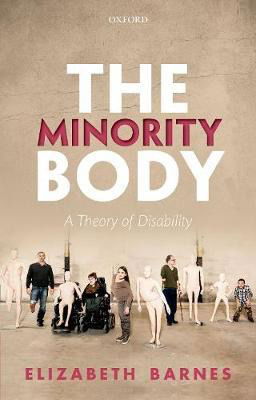
3:16: You’ve written about philosophical issues regarding physical disability – is it possible to carve away physical from psychological and cognitive disability? Isn’t there a way of unifying these – and aren’t the philosophical issues similar enough to have them grouped together even if the tripartite division can be upheld? Why focus just on the physical?
EB: Well, I think it might be possible to give a theory of disability as a unified kind which encompasses physical, psychological, and cognitive disabilities - I’m agnostic about whether this is doable because I’m agnostic about whether there is any such kind. But if it’s doable, it will take a better philosopher than me to do it. Because I tried and I couldn’t get it done. My original aim, when I was thinking of starting a book-length project on disability, was to focus on disability more broadly rather than specifically on physical disability, but as I got further into the project the issues of psychological disability most especially seemed to me so complicated that in many cases I just didn’t know what to say about them, and I definitely felt like I couldn’t tackle them within the scope of the project I was pursuing. It also seemed to me that, although there are things that physical disability has in common with both psychological and cognitive disability, physical disability is also a distinctive phenomenon in its own right that it makes sense to theorize about on its own terms. I’m a fan of ‘ground up’ rather than ‘top down’ theorizing, so my hope was and continues to be that my work on physical disability can be part of the wider, growing philosophical conversation about various forms and aspects of disability, and that we can collectively look to see where the commonalities are and where the differences may be.
Just to give an example of the complexities I ran into, I was particularly interested in focusing on the testimony of disabled people about their own quality of life. But one of the differences between physical and psychological disability is that the latter often has an inherent connection to meaning and rationality in a way that the former doesn’t, which makes questions of how we evaluate testimony so much more complicated. For example, it’s a constitutive feature of depression that people tend to devalue their own lives. So if someone dealing with major depressive disorder says that their life is unendurable, that would frequently be interpreted as a part of their experience of depression. Physical disability, in contrast, doesn’t seem to work like that - if someone with rheumatoid arthritis says her life is unendurable, she may in an important sense feel that way because of her arthritis, but that feeling isn’t part of what it is to have arthritis. Likewise, sometimes pro-attitudes toward a condition, in the context of psychological disabilities, are considered part of the condition itself. If someone with rheumatoid arthritis tells me her arthritis is good for her, I may or may not believe her, but either way that testimony once again isn’t part of what it is to have arthritis. But consider, in contrast, the attitudes often expressed on pro-anorexia forums. When people say that eating disorders are a positive manifestation of self-control, or even go so far as to say that they’d rather be dead than not have an eating disorder, this is almost always considered part of the pathology of the eating disorder itself.
I have no idea what to make of these kinds of complexities, and of course it doesn’t follow that just because there are differences between paradigm physical and paradigm psychological disabilities there’s not a unified account to be had. (After all, there are vast differences between the various things we label physical disability as well.) It’s just to say that I think psychological disability is perhaps one of the most complex and philosophically under-explored topics out there, and I hope more and more very smart people start writing about it, because I’m baffled.
Not to be too obnoxiously self-promotional, but I go into some of these issues in more detail in a forthcoming paper in Philosophy and Phenomenological Research’s symposium on my book, if anyone’s curious. And I also can’t stop recommending Nomy Arpaly’s paper ‘How it’s not ‘Just Like Diabetes’: Mental Disorders and the Moral Psychologist’, which has really helped and guided my thinking in this area.
3:16: Terminology is difficult in this area isn’t it – whatever term you use someone is going to be upset! So how do you decide what terminology to use – what’s disabled for you (why isn’t it impairment?), and ableism? Why not ‘differently-abled’? Is crip legitimate?
EB: I am probably going to get in trouble on the internet for this answer, but being perfectly honest: I really find it very hard to care all that much about terminological issues like this. I don’t deny that language can be a powerful and important tool, but I think much of what we convey with language goes far beyond - and is rarely well-captured by - minutiae of terminological debates like ‘disabled’ vs ‘person with a disability’. I also, quite frankly, find the amount of time we spend on these questions absurd. My people are dying because they can’t get access to healthcare, and the woke intelligentsia are busy on twitter arguing over the finer points of ‘person first language’. Speaking only for myself - which is all any of us can ever do - if you treat me with kindness and basic human dignity you can use whatever word for disability you want and I really just don’t care that much.
I’m being somewhat flip here, obviously, but I do think this is a serious issue in a lot of progressive discourse. The specific terminology we use becomes so deeply moralized, and changes so quickly, that it creates barriers for entry into conversations. People who just don’t happen to know the ‘correct’ terminology of the day get called out as bad actors, when they might just be people who don’t know the lingo of that particular circle. And worse, we end up focusing too much attention on the specifics of word choice and lose sight of the bigger structural issues. Like I said, I don’t mean to downplay the importance or the power of language - I’m just skeptical that debates about terminology like ‘disabled’ vs ‘differently-abled’ ever really capture the heart of the issue.
3:16: So you argue that to be disabled is not sub-optimal or bad but nevertheless is compatible with harm. Can you explain this subtle move and why it’s important?
EB: The basic idea is that something which is by itself neutral (or even good) can nevertheless have aspects which are bad or harmful. I think this is actually a really common phenomenon - human wellbeing is complicated and things are rarely all bad or all good. But for whatever reason people seem to assume that when someone says that disability isn’t bad, they’re thereby committed to thinking that every aspect of disability isn’t bad. And that’s just not plausible. I’ll use myself as an example, since these interviews are semi-autobiographical. I value my experience of being a disabled person and I wouldn’t want to be non-disabled. But lately because of some complex medical stuff that’s being going on I’ve been throwing up a lot, and I also have some tricky issues with my blood pressure, and those two things don’t always play nice together.
So, long story short, the other day I threw up so much that I passed out. I even hit my head on the toilet on the way down. Anyway, I think it’s fair to say I was not living my best life in that moment. That was a reasonably crappy moment. And no amount of improvement in accessibility - except maybe, I don’t know, softer toilets? - would change that, because it was entirely about the biological condition of my body. If saying that disability is neutral means saying that moments like that aren’t harmful to my wellbeing, then the game is up. But of course the very same thing that is - at some times or in some respects - harmful can, in other ways, also be good for you, such that on balance and all things considered, it’s not bad for you overall. Again this is not at all unique to disability. I love my dogs - I think living with dogs is one of the greatest sources of wellbeing in my life. But the other night when one of my dogs had diarrhea all over our living room rug at 2am, I wasn’t feeling that increase in wellbeing. Loving dogs and loving being a dog owner doesn’t entail loving every single thing about being a dog owner.
I think this is important partly because I think it’s important to grapple with the complexity of disability. Sometimes disability-positive accounts can sound a bit Pollyanaish - even to the point of being callous or insensitive to people’s suffering. And I think it’s important to emphasize that defending the kind of view of disability that’s popular within the disability rights movement - the view which says that disability makes you different, but it doesn’t automatically make you worse off - needn’t involve denying the negative aspects of disability. We don’t have to deny the limitations, the loss, even the deep grief that can go along with disability in order to adopt the kinds of views I’m interested in. Disability is hard - often because of social barriers, but sometimes just because of the nature of disability itself. And I think it’s important for disability-positive positions like mine to grapple with that.
I also think it’s an important distinction to make because the move from ‘you value being disabled’ to ‘therefore you must value every single aspect of your disability’ that people seem to make so easily shows just how entrenched a medicalized view of disability is. People have a hard time thinking of disability as anything other than a collection of symptoms, so when you say ‘I value being disabled’ they hear ‘I value this collection of symptoms’. What you’re saying, instead, is that you value a complex experience - both physical and social - of navigating the world in a body that functions differently from most people’s bodies and which violates the norms and expectations most people have for how bodies ought to function. But I think that’s harder to communicate.
3:16: So the position you endorse you call ‘a minority body’. So what’s the argument for this and what is a minority body?
EB: Well, disability rights communities have often championed a so-called ‘minority model’ of disability, according to which we treat disability just like any other way of being a minority relative to the dominant culture - it’s something that makes you different from the expected norm, but not something that by itself or intrinsically makes you worse off. This is a departure for a lot of people in thinking about disability, because while most people will grant that it is harder to live in our society if you’re queer or nonbinary or Latinx or etc, the solution to those hardships is to make the world a more just place. Whereas most people think that, given that it’s harder to live in the world as a disabled person, the solution is to cure and prevent disability. So I just borrowed the terminology from the idea of a ‘minority model’ and made a silly bit of a word play with it.
The basic gist of the view, though, is that having a physical disability is, in my terminology, mere-difference rather than bad-difference - it’s something that makes you atypical with respect to your physical body, but it’s not something that in and of itself reduces your wellbeing. I think this is compatible, as I said above, with thinking that there are some aspects of disability which are harmful, and which would remain harmful even in a fully accessible society.
I’m not sure how well I can rehearse the argument for this concisely. Tl;dr - if you look at what disabled people say about their own lives, especially about the things they value about their experiences of being disabled, and if you look at the rich ways in which people experience disability - the art they create, the activist movements and communities they build - then you can build a pretty compelling argument based on testimony and experience that, even if disability is bad for some individuals (depending on what else it’s combined with and what else that person wants), it’s not itself something that reduces wellbeing. This is not to deny that disability often involves the loss of valuable things, but rather, to quote Rebecca Atkinson, a recognition that for many disabled people their experience of disability is that ‘what you lose in one place, you gain in another.’ We talk so much about the loss and the limitation of disability hearing loss, sight loss, limb loss, function loss, etc. But as my friends and colleagues Teresa Blankmeyer Burke and Joe Stramondo have been urging, we also need to talk disability gain. Understanding disability is incomplete unless we address both.
3:16: So why doesn’t this mean that it is permissible to cause disability and impermissible to cause nondisability which I guess is one of the key worries about the position?
EB: There’s no general answer to this question, because there are so many different ways to cause disability. And of course the issue is complicated by the fact that while being disabled may not always be experienced as a harm, becoming disabled is almost invariably experienced as extreme hardship (and understandably so). I think the place where people press the objection most strongly is in the case of a fetus. Suppose you could subject a fetus to a procedure that would cause it to acquire a disability it would not otherwise have had. The fetus will never have experienced life without that disability and will likely grow into a person who has that disability as an integral part of their identity. Many people nevertheless think you’ve done something wrong if you subject the fetus to that procedure, even if the person it becomes is a happy, well-adjusted disabled person. On the other hand, if you’ve got a fetus that would, left to the normal course of things, develop a disability, but you can subject it to a procedure that would remove that disabling condition in utero, most people think you should absolutely do that.
What I want to say about cases like these, in addition to what I’ve already said in print, is that this is a kind of ethics with which I am increasingly uncomfortable. I’m not sure there’s a general answer that it makes sense to give in the abstract, and I worry that searching for a formulaic answer that’s abstracted from the everyday details in which people make decisions about their potential children obscures more than it clarifies. For one thing, questions like this are asking us to judge and morally proscribe the actions of pregnant women, and I already think we do way more of that than we should. But the abstractness of questions like this also elide some of the social complexities of disability which I think really matter. Disability, even if neutral, invariably requires accommodation, and accommodation is, in the world we inhabit, a scarce resource. Disability often involves caretaking work undertaken by others - what Eva Kittay calls the labor of dependence - and again in the world we inhabit this is work that disproportionality falls on women, especially women of color, and is poorly compensated. Disability often involves complex health conditions, and there is striking socioeconomic disparity in whether parents can manage the cost and even in some cases just the time such health conditions can demand. All that to say, it’s complicated, and I’ve grown wary of answering questions like this at a highly abstracted level. Everyone should read Joe Stramondo’s fantastic paper ‘Doing Ethics From Experience’, which covers these issues much more gracefully than I have.
3:16: This raises issues about realism, anti-realism and social structures which in turn raises issues about how to understand metaphysical realism. So here’s a way your work on disability and metaphysics intersect – and feminism too. So is what you’re doing with disability a version of social constructionism, is it realist or antirealist and what difference does it all make to how we understand metaphysical realism and anti-realism?
EB: My approach to disability is definitely social constructionist, and what I’ve argued is that this is compatible with physical disability being at least partly a matter of the biological condition of your body. Whether you have a disability, on my view, is determined by whether your body is in a particular state. But the fact that we group a bunch of disparate physical states together into the group ‘disabilities’ is more about us - our social practices and attitudes - than about any objective similarities that unify the all the things we call ‘disability’.
‘Realism’ is a term that means a lot of different things to a lot of different people, but I suppose that my approach is realist insofar as when I’m asking a question like ‘what is disability?’ I take myself to be attempting to describe the nature of our social world - the social categories and structures we’ve created that shape our lives. I don’t take myself to be describing our concepts or our language, even though obviously in the social case our concepts and language will have an impact on what the social world is like, in a way that our word ‘electron’ doesn’t have an influence on what electrons are like.
This means I tend to reject views of metaphysical realism that describe realism in terms of human independence, or views which say that we should be metaphysically realist only about the fundamental.

3:16: Gender is rather a hot potato at the moment in philosophy. You have argued that the best way to understand gender is not to match it up directly with categories like woman, man, nonbinary etc. So how should we understand gender and how does it apply to the issue currently dividing many feminists and trans women?
EB: First of all, I’d like to push back a little against the framing here - I seriously doubt this is what you meant, but the wording of the question could be taken to imply that feminists and trans women are distinct groups, and I’d want to wholeheartedly reject that implicature. There’s definitely a conflict within the set of people who self-identify as feminist over issues of gender, though, which I assume is what you meant.
That being said, I don’t know what gender is, and I don’t know how to understand gender, and I am immediately suspicious of anyone who claims to have all the answers here. Gender is confusing! What I’ve tried to argue is that we can distinguish between the underlying social structure that ultimately explains the social significance of gender and questions like ‘what is gender?’ or ‘what is a woman?’ or ‘what does it mean to be non-binary?’. I think that, ultimately, gender has the deeply entrenched social significance that it does because we have organized societies, across so many different places and across so many different times, in a way that tries to control and exploit the female body - especially its reproductive and sexual labor. I think that this underlying social structure - this embedded pattern in our social world with its long history - is what explains the deep social significance of gender.
But there’s a difference between asking ‘what social structures explain the entrenched significance of gender?’ and asking ‘what is gender?’ And I think everything I said about the former question is compatible with thinking that the answer to the latter question is wide and varied, and needs to highlight the importance of things like gender identity and gender expression. It’s also compatible with there being lots of different ways that you can be socially positioned with respect to gender - just because the underlying structure is binary doesn’t mean that a social position account of gender needs to be binary. It’s also compatible with gender terms being flexible things that can mean different things in different contexts, and which we can shape according to our political goals, which is why I think subjecting questions like ‘what is a woman?’ to intensive metaphysical or definitional analysis might not be all that fruitful.
For whatever reason, people who are critical of the idea that sincere gender self-identification needs to be treated as accurate and authoritative often seem to think that we can only treat gender self-identification as authoritative by denying the importance of the body to gender, or by saying that gender is merely a matter of personal feeling (and thus giving up on materialist or structuralist theories of gender). I think that isn’t true, so my work has been an attempt to add to the conversation around the options for things we could think about gender. But gender is hard, and our understanding of gender is very much culturally in flux at the moment, so I don’t pretend to have the answers here.
3:16: You’ve appealed to Sally Haslanger’s idea of an ‘ameliorative project’ in your work on both gender and disability. How do you think we should understand the relationship between politically loaded topics like these and philosophical inquiry? Is the point of philosophy in these areas to try to make the world a better, or just to ask hard questions? What about views in these areas that some people find offensive?
EB: This one is tricky. My reading of the ameliorative project (which I don’t intend to suggest as Haslanger exegesis) is fairly mild. When I am doing philosophy of disability or philosophy of gender, I am aiming at the truth, just like I would be in any other area of philosophy. These are, of course, areas where I believe that ideology and prejudice can often make the truth hard to see, so the process of theorizing is often at least in part what Haslanger calls a ‘debunking’ project. It’s saying things like: no, disability isn’t just a collection of negative physical symptoms, despite how we typically think about it. And it’s also about trying to bring attention to things that are too easily obscured. It is easy to see disability loss; everyone knows what that is. Disability gain is harder to see and harder to recognize, and all too often gets reconceptualized as ‘triumph over adversity’ or ‘learning from the struggle’.
The relationship between truth and social progress is then an optimistic bet. I hope that knowing the truth is part of what sets us free. But that’s an empirical hunch that could well turn out to be wrong. It could be that people aren’t motivated by the truth in any way, or that a noble lie would’ve been more politically effective. It’s also, of course, an open question that the truth could turn out to be politically inconvenient for people like me. I hope it’s not, but it might be. And I think any open and honest philosophical inquiry needs to countenance that - otherwise it feels too much like the conclusions are baked in to the arguments, and that’s not what we’re here for.
People sometimes suggest something stronger - that, e.g., philosophy in these areas should be about advancing the view that is most likely to do the work of justice. And I’m somewhat uncomfortable with that idea. For one thing, I think it should be possible for something to be politically effective but false, and while I’m interested in rhetorical spin when I’m canvassing for political candidates, I don’t think that’s the project I’m undertaking when I’m doing philosophy.
The issue of offensive views or arguments in these areas is, of course, equally tricky. I think we need to take seriously the pain and harm that can be caused to individuals by philosophical arguments. What is a purely hypothetical thought experiment for one person is a discussion of someone else’s personal suffering, and I think that discrepancy matters. Nor do I think all arguments are worth taking seriously - sometimes the moral awfulness of an argument’s conclusion can make me think that it’s not worth engaging, no matter how clever or interesting the premises might be. The question then is when to engage, and for me that is just a hard question with no clear answers.
At least for my own decisions, one thing I think about a lot is whether the argument is taken seriously in wider public discourse. (I know people worry that engaging with offensive arguments will ‘legitimize’ them, but in a lot of cases the arguments already have widespread currency, and whether I pay attention to them won’t change that.) I’m the elite among disabled people - I have great health insurance and a full-time job with great job security. And I also, in an important sense, make my living and my reputation from talking about the experiences and the oppression of people less fortunate than I am. So if I then turn around and say, in response to an argument that has wide public currency, that it’s too offensive for me to engage with, that doesn’t strike me as fair. What am I here for if not to philosophically engage with arguments that are hurting people who are subject to the type of oppression I study (the study of which gets me a nice paycheck and invitations to fancy universities and etc)?
Of course I want to emphasize that what I think holds for me in this case needn’t universalize everyone is different, as is every philosophical conversation. Some arguments over trans issues, for example, question the identity of trans people in a way that is especially personal, not the least because so much of the oppression that trans people face involves repeated questioning and denying of their identity. So it’s complicated.
Another thing that matters to me a great deal, when thinking through these issues, is what happens to philosophical discourse if we repeatedly say that arguments or positions ought not to be entertained because they are offensive or politically unacceptable. I should caveat by saying that I think that a lot of complaining about free speech and no-platforming is overblown, especially because in many cases we adopt a ‘teach the controversy’ mindset in which arguments are given prominence not because they are particularly interesting or challenging, but simply because their conclusions are controversial. And then the same people are asked, over and over, to engage with these arguments in a way that can feel more like public theater than genuine philosophical engagement. And I can understand getting sick of that. That being said, I am genuinely concerned about issues of political censorship in philosophy.
And I’m concerned not because I think we have to make sure we protect the rights of obnoxious people to say obnoxious things (although I do think that.) I’m concerned because academia, like most any other social setting, has embedded hierarchies and power structures. If I was confident that the progressive elite of academia would always be on the side of right, then I wouldn’t be too worried about a norm of discourse that says you can shout down views that you find offensive or that you are politically opposed to. But I’m not confident of that. In fact I’m very confident of the opposite. And so I think it’s imperative, if we want to protect the ability of the truly vulnerable to be heard and to question consensus, that we have a norm of allowing views that go against the political grain. This will, of course, involve having a norm that allows for shitty and offensive views. But I think that’s a price worth paying.
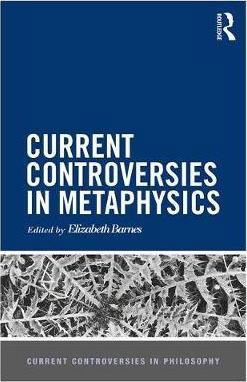
3:16: Metaphysics is of great interest to you – and you’ve pushed back against the arguments that say that ‘feminist metaphysics’ isn’t metaphysics. So what are the arguments raging round this issue – I guess my first instinct is to think that metaphysics can’t be captured by a social category, and then my second one is to worry that everything gets so captured ? Help me out here!
EB: What I’ve mostly pushed back against is the idea that metaphysics is only about ‘the fundamental’ or the places where nature is ‘carved at the joints’. I think social metaphysics is metaphysics, and I think there are things that are metaphysically interesting and explanatorily important which are nevertheless created and sustained by collective human activity. I think gender is a topic that deserves metaphysical investigation, for example, but I don’t think it’s natural or fundamental (at least not the in the sense of ‘fundamental’ often employed here.)
3:16: And metaphysics itself is often under fire – if not being ignored, and you yourself put the issue quite fiercely when you wrote: ‘ If metaphysics is a robust enterprise, trying to describe the nature of objective reality, then surely its questions are better answered by physicists. If it's a more modest enterprise, trying to describe our concepts, then surely its questions are better answered by philosophers of language and philosophers of mind. If it's a domain where multiple answers are on equally good footing and the disputes are merely verbal, then surely its questions are better left unasked.’ So what’s the point of doing metaphysics? Is the notion of metametaphysics proof that metaphysics is under pressure to justify itself, and what are contemporary metaphysicians up to – is it significantly different from its earlier manifestations or is there a deep continuity of both subject matter and methods? And are you a revisionist or a traditionalist (like someone like eg Sider, Schaffer and Fine) regarding the issue of how metaphysics deal with ontological questions?
EB: When it comes to metaphysics, I’m kind of like an addict. I wish I knew how to quit, you know? I find these questions as frustrating as anyone else and I’m skeptical that creatures with minds like ours are going to be all that successful at trying to answer them. But I can’t help myself. I find metaphysical questions inevitable and unavoidable. I always find my way back to them. Maybe it’s just something about my cast of mind, but I think we’ll always do metaphysics because these questions will always, inevitably, come up.
I also think about metaphysics what I think about almost any area of philosophy - we might not make progress, we might just be fumbling around in the dark with no hope and no flashlight. But there is something beautiful about the fact that as humans we ask and try to answer these questions, and there is value to the asking. Like I said, though, I’m an addict, so I might just be on a bad trip.
3:16: Sider has kicked back against your arguments for ontic indeterminacy but you have kicked back against his kicking. So can you sketch the dialectic here and where we’ve ended up so far. I take it that your position puts paid to epistemic vagueness arguments given that they are only applicable to semantic vagueness? Is that right?
EB: So Sider has argued against the possibility of vague existence. And if - as I think is fairly plausible on at least a lot of frameworks, as my wonderful supervisor Katherine Hawley argued - vagueness in the world leads to vague existence, that argument is a general argument against metaphysical vagueness. It’s important to note, though, that Sider’s intended target of this argument wasn’t the defender of metaphysical vagueness, but rather the defender of semantic precisification of the existential quantifier - so my argument isn’t really against him, per se, but rather against the way his argument is often used as an attempted refutation of metaphysical vagueness.
The argument, in a nutshell, is that vagueness always admits of precisification, but the existential quantifier doesn’t admit of precisifcation, so vague existence is incoherent. (I’m simplifying, obviously.) Imagine you’ve got two candidates for the meaning of ‘there exists’, one containing [a] and one containing [a,b]. This is how you’d represent a world at which a determinately exists but b indeterminately exists (and determinately nothing else exists). But Sider argues that it can never be be indeterminate, in a situation like that, whether the extension of ‘there is’ is [a] or [a,b] because it will always, determinately be [a,b] - the existential quantifier always ranges over absolutely everything. And I think this argument might work against its intended target, but I don’t think it can be repackaged as an argument against metaphysical vagueness, because if the world itself really is vague, then I think the existential quantifier can have two candidate meanings, precisely because it’s indeterminate what there is (and not just indeterminate what ‘exists’ means). [a] isn’t determinately the extension because it’s not determinately exhaustive, but [a,b] isn’t determinately the extension because it’s indeterminate whether there is any such thing that is b, and thus indeterminate whether the thing that represents itself as having extension [a,b] is even a genuine quantifier (since quantifiers can’t include in their extensions things that don’t exist - sorry Meinong - and it’s indeterminate whether b exists).
3:16: As a take home then, how would you describe your fundamental ontology? Is vagueness fundamental? And is an explanatory holism possible?
EB: Oh, Lord, I don’t know. Dogs, probably? I think dogs are fundamental and nothing else is.
More seriously, I do think there can be indeterminacy in the world that is not a matter of how we speak or think about things, but a matter simply of how things are. Whether or not indeterminacy is fundamental isn’t all that important to me. I’m also really interested in explanatory holism, and think that ontologies that rely on explanatory holism - interdependencies and joint dependency and emergence - are a neglected area in metaphysics.
3:16: A new thing I’m trying out is this optional survey – one word answers only if you decide to do it – unless you want to explain something -
Q: a. A priori knowledge: yes or no?
A: Maybe?
Q: Abstract objects: Platonism or nominalism?
A: Nominalism
Q: Aesthetic value: objective or subjective?
A: Probably a mixture of both
Q: Analytic-synthetic distinction: yes or no?
A: Don’t care
Q: Epistemic justification: internalism or externalism?
A: Externalism
Q: External world: idealism, skepticism, or non-skeptical realism?
A: Non-skeptical realism
Q: Free will: compatibilism, libertarianism, or no free will?
A: Compatiblism
Q: God: theism or atheism?
A: I believe in God but I think it’s more complicated than the traditional theism/atheism divide
Q: Knowledge claims: contextualism, relativism, or invariantism?
A: No idea
Q: Knowledge: empiricism or rationalism?
A: False dichotomy
Q: Laws of nature: Humean or non-Humean?
A: Humean but also I’m super ignorant about this so my opinion is worthless
Q: Logic: classical or non-classical?
A: Depends on what you’re trying to do with it I guess?
Q: Mental content: internalism or externalism?
A: Externalism
Q: Meta-ethics: moral realism or moral anti-realism?
A: Realism all the way
Q: Metaphilosophy: naturalism or non-naturalism?
A: I don’t think the naturalism/non-naturalism debate is well defined
Q: Mind: physicalism or non-physicalism?
A: I’ve never been clear on how to define physicalism, so I don’t know
Q: Newcomb's problem: one box or two boxes?
A: One box, fight me
Q: Normative ethics: deontology, consequentialism, or virtue ethics?
A: Virtue ethics
Q: Perceptual experience: disjunctivism, qualia theory, representationalism, or sense-datum theory?
A: I have never, in my entire life, been able to form a coherent opinion about the philosophy of perception
Q: Personal identity: biological view, psychological view, or further-fact view?
A: Psychological view
Q: Politics: communitarianism, egalitarianism, or libertarianism?
A: Communitarianism
Q: Proper names: Fregean or Millian?
A: No opinion
Q: Science: scientific realism or scientific anti-realism?
A: I waver, but in my rebellious moods I lean toward anti-realism
Q: Teletransporter (new matter): survival or death?
A: Survival
Q: Time: A-theory or B-theory?
A: A-theory I guess?
Q: Trolley problem (five straight ahead, one on side track, turn requires switching, what ought one do?): switch or don't switch?
A: I honestly think that one of the only morally unacceptable things to do in such a godawful situation would be to have a supremely confident opinion and proceed to make the choice without regret. Trying to force a firm judgement in either direction is one of the weird artifacts of abstracted thought experiments. If I were ever actually in that situation, I hope what I’d be doing was frantically seeing if there was anything else that could possibly be done while toggling the switch back and forth, crying, and screaming ‘I don’t know what to do!’
Q: Zombies: inconceivable, conceivable but not metaphysically possible, or metaphysically possible?
A: I mean who really knows though
3:16: And for the readers here at 3:16, are there five books you can recommend that will take us further into your philosophical world?
EB: Right now I am thinking a lot about health, which is the next big project I’m undertaking. So my current philosophical world looks a little like this:
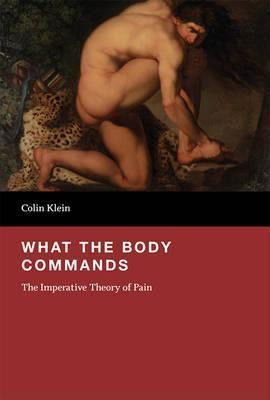
Colin Klein, What the Body Commands

Havi Carel, The Phenomenology of Illness
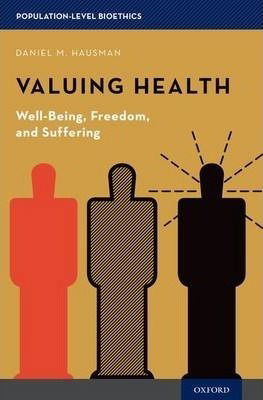
Daniel Hausman, Valuing Health
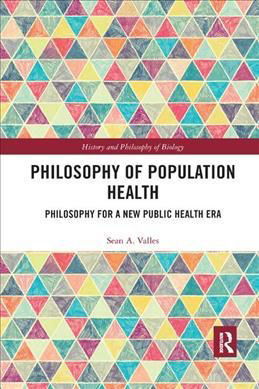
Sean Valles, Philosophy of Population Health
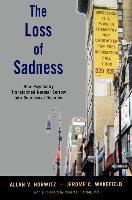
David Horowitz and Jerome Wakefield, The Loss of Sadness
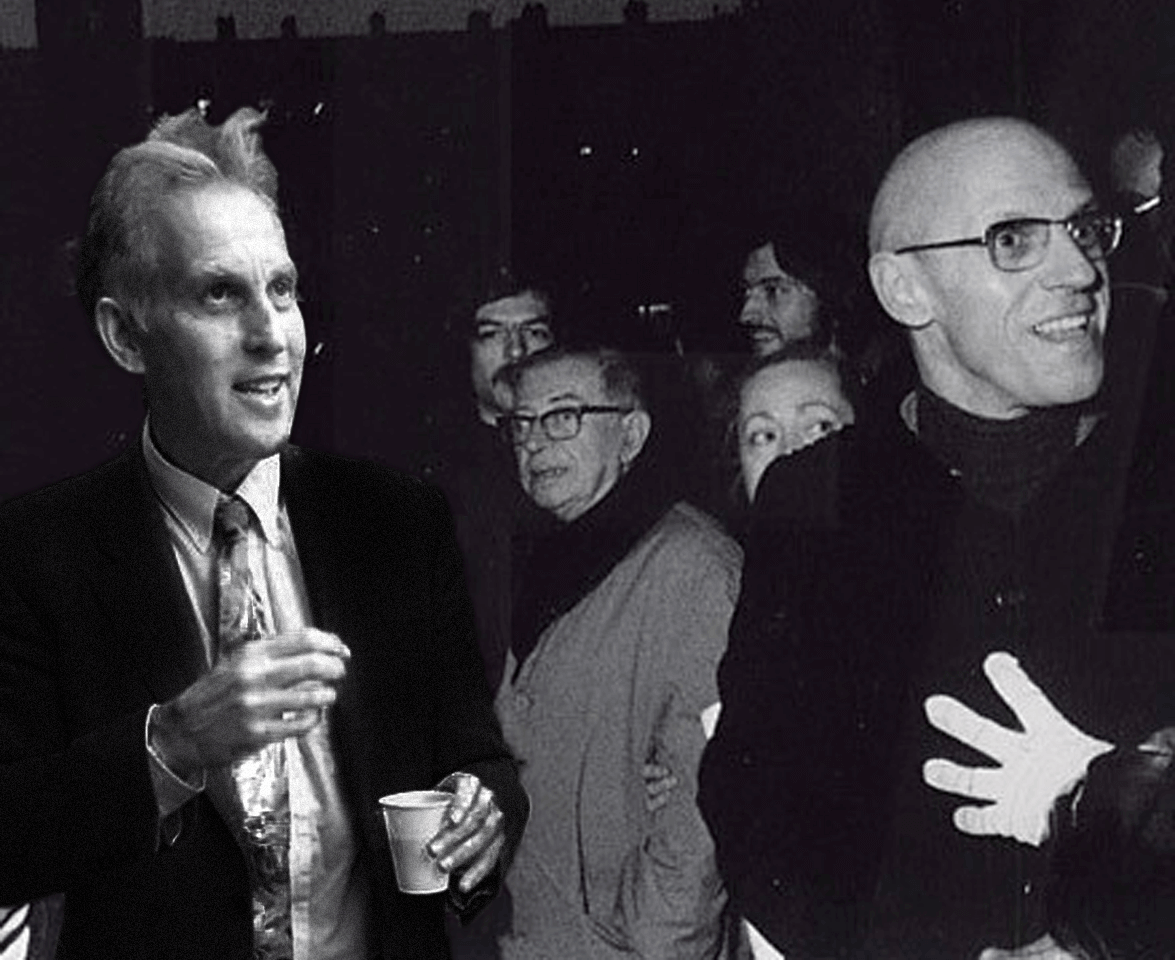
ABOUT THE INTERVIEWER
Richard Marshall is biding his time.
Buy his new book here or his first book here to keep him biding!
End Times Series: the index of interviewees